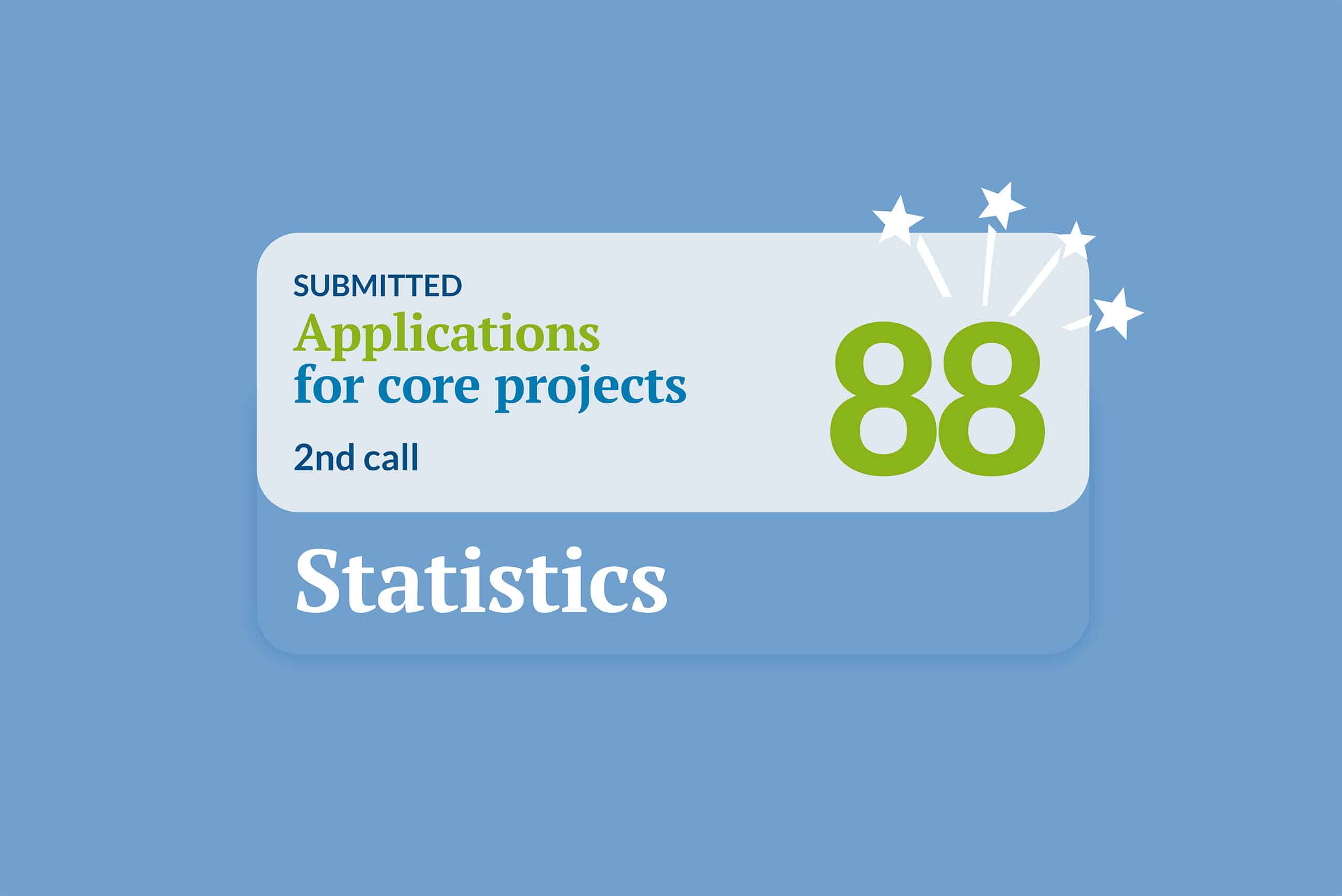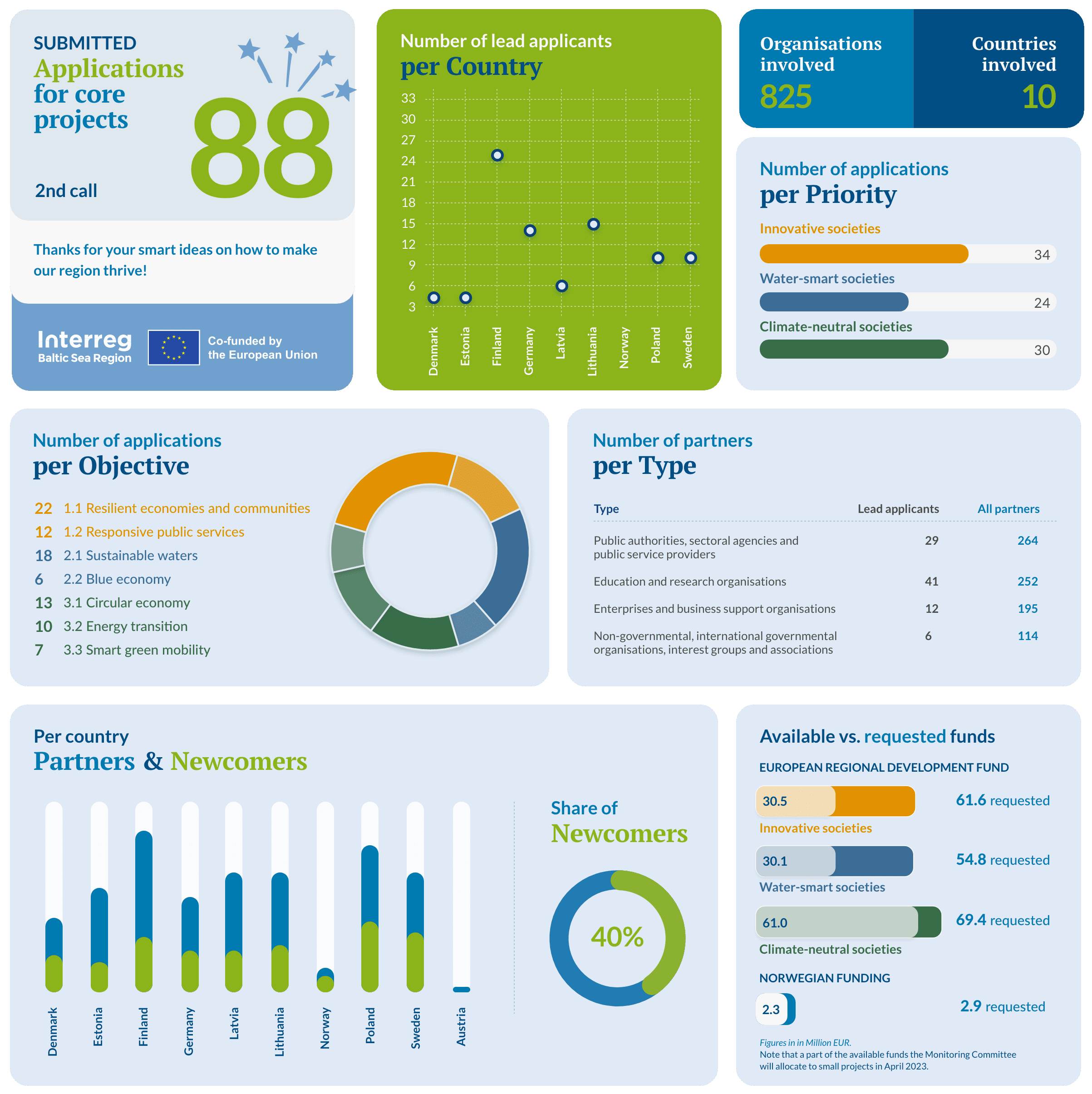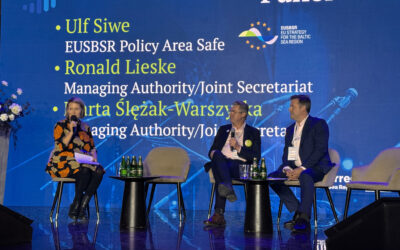
15 March 2023
88 ways to shape the region!
Written by Anna Gałyga
The Interreg Baltic Sea Region Programme has closed the second call for core project applications with 88 proposals for innovative, water-smart and climate neutral solutions to solve the challenges in the Baltic Sea region!
Second call for core ideas: accomplished!
The Interreg Baltic Sea Region Programme successfully continues to help organisations connect in order to drive the transition to a green and resilient region. In the second call for core project applications, more than 800 organisations from ten countries applied for funding for their project ideas. Their 88 proposals target the three thematic priorities: Innovative societies, Water-smart societies and Climate-neutral societies. The requested funds amount to almost EUR 190 million from the European Regional Development Fund and Norwegian national funding.
Best scoring topics
Priority 1 (Innovative societies), with 34 applications in total, attracted the highest interest among the applicants. When taking a closer look at the Programme objectives, the most popular turned out to be Resilient economies and communities (22 applications), Sustainable waters (18 applications), Circular economy (13 applications) and Responsive public services (12 applications).
Who are our applicants?
The organisations that most often took the role of a lead applicant come from Finland (25), Lithuania (15) and Germany (14). Most of them represent an education or a research organisation (41) or a local, regional and national public authority/sectoral agency/service provider (29).
Out of 825 organisations involved in the project partnerships, the highest numbers of partners come from Finland and Poland.
Despite the advanced character of core projects, as much as 40% of all partners turned out to be new to the Programme! We are glad to observe that the framework offered by the Programme fits well for so many organisations around the Baltic Sea. Equally important is a rich array of solutions proposed by applicants that would respond to the current needs identified in the region.
Next steps
The Managing Authority/Joint Secretariat (MA/JS) started immediately the admissibility check and assessment of the applications. The Monitoring Committee will select the best project ideas for funding in June 2023. We keep fingers crossed for the best project ideas!
#DidYouKnow
Core projects are the Programme’s main tool to deliver change in the Baltic Sea region. How? Partners in projects prepare, pilot, and transfer practical and durable solutions to the challenges in the region. This is how they can respond to core needs in the region to make it green and resilient.
Don’t miss these links
More recent news
D 3.4 Durability plan and transfer report for integration into existing infrastructures
Designing Interreg Baltic Sea Region that belongs to everyone
10 December 2025 Designing Interreg Baltic Sea Region that belongs to everyone Written by Eeva Rantama What if the next Interreg Baltic Sea Region...
Monitoring the Programme’s progress: transnational cooperation in the making
Representatives from nine Programme area countries gathered in Berlin on 19-20 November 2025 to review the progress of the Programme’s implementation and start preparing for the post-2027 period.
Beyond Borders: Turning Interreg Results into Policy Action
At this year’s EUSBSR Annual Forum in Sopot, the session “Beyond Borders: Interreg Results in Action for a Resilient and Safe Baltic Sea Region” showcased how Interreg Baltic Sea Region projects are transforming challenges into policy-relevant results that strengthen resilience, safety, and cooperation across the region. The session brought together project partners, EUSBSR policy area coordinators, members of the Programme Monitoring Committee and young participants to explore what it takes to turn project outcomes into lasting policy impact.






